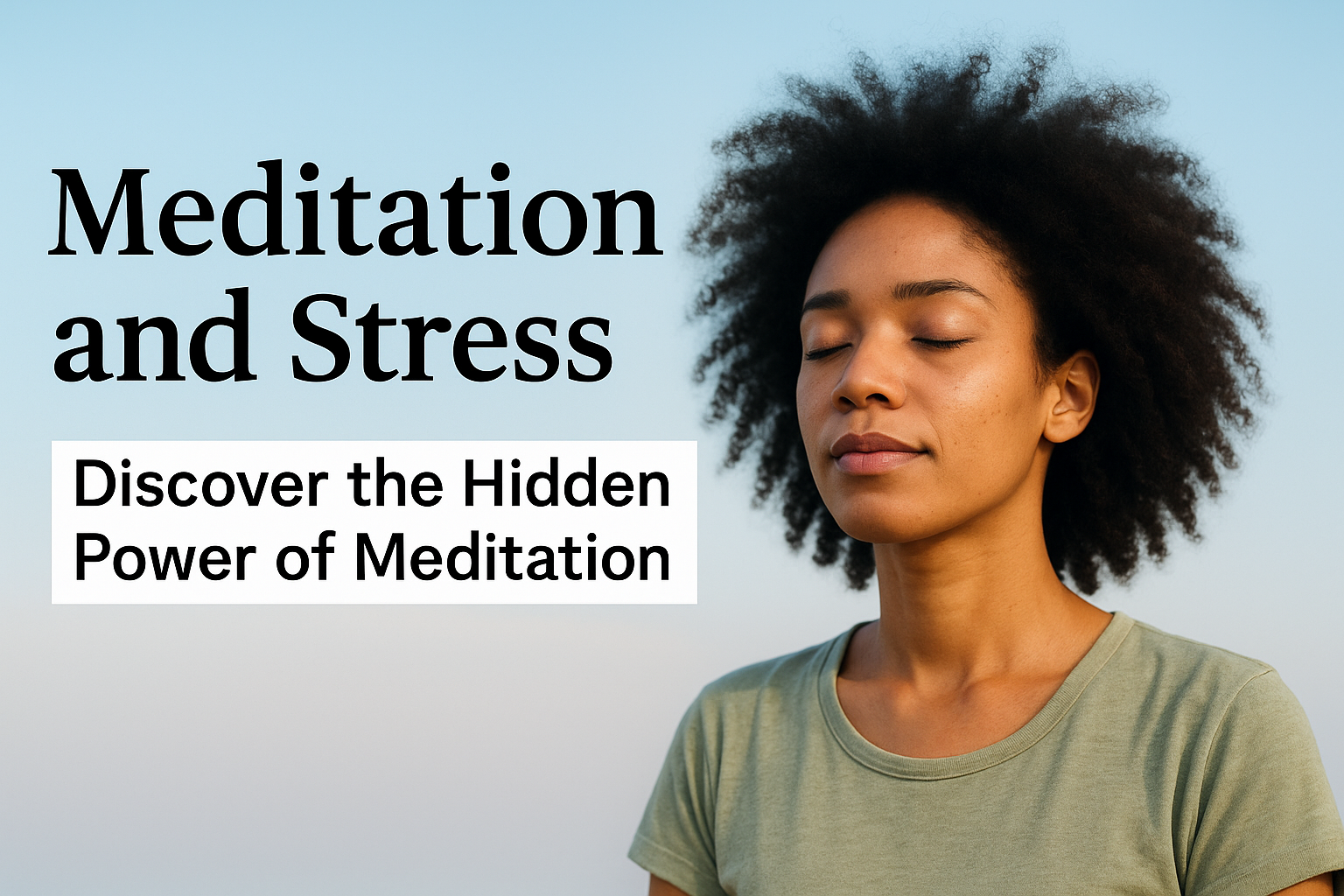How Meditation Reduces Stress is no longer just a feel-good slogan—it’s a data-backed fact. A 2014 JAMA Internal Medicine meta-analysis spanning 47 randomized trials and 3,500+ participants found that mindfulness programs produced moderate drops in anxiety and depression in as little as eight weeks. In this article we’ll unpack why those results happen and how you can harness the same calm-building power in your own life. Welcome aboard!
How Meditation Reduces Stress and Builds Mental Strength
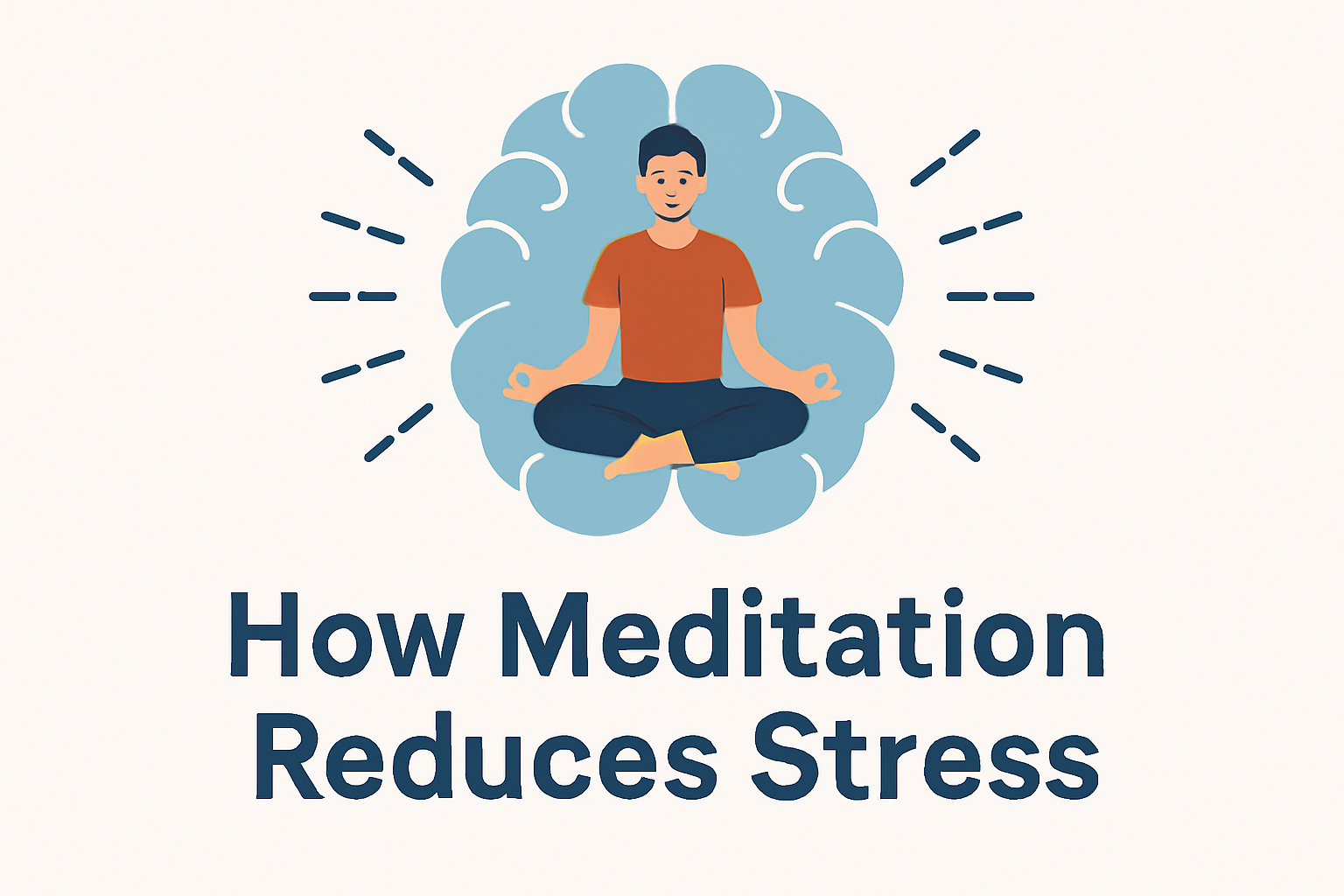
Why You Should Care About Meditation for Stress Relief
Stress is an unavoidable part of life. Whether it’s work pressure, personal challenges, or the constant stream of information we deal with daily, stress can silently wear us down. That’s where meditation comes in — not as a magical cure, but as a grounded and accessible practice that can help you stay centered.
Meditation helps calm the mind by reducing the overactivity in the brain’s stress-related areas, such as the amygdala. It encourages deeper breathing, slows down your heart rate, and shifts your focus from racing thoughts to the present moment. Over time, this trains your nervous system to respond more calmly to future stressors.
Scientific research supports these benefits. For example, studies by institutions like Harvard and Stanford show that meditation can reduce cortisol (the stress hormone) and even increase gray matter in brain regions related to memory, empathy, and emotional regulation.
But beyond the science, many people find that just 10–15 minutes of daily meditation helps them feel more in control, more aware, and more emotionally balanced. It’s not about escaping your problems — it’s about facing them with a clearer, calmer mindset.
🔗See the data: Goyal M et al. “Meditation Programs for Psychological Stress and Well-Being” – JAMA Internal Medicine (systematic review of 47 RCTs)
Research Evidence and Clinical Studies
A landmark meta-analysis published in JAMA Internal Medicine reviewed 47 randomized controlled trials with over 3,500 participants. The study found that mindfulness meditation programs led to moderate reductions in anxiety, depression, and pain. Specifically, anxiety levels showed an effect size of 0.38 after eight weeks of practice and 0.22 after three to six months. Similarly, depression scores improved with an effect size of 0.30 at eight weeks. The study concluded that meditation programs can produce small to moderate improvements in psychological stress, offering a scientifically supported strategy for mental well-being.
Source: Goyal M, Singh S, Sibinga EMS, et al. Meditation programs for psychological stress and well-being: a systematic review and meta-analysis. JAMA Intern Med. 2014;174(3):357–368. doi:10.1001/jamainternmed.2013.13018
Understanding the Link Between Meditation and Stress
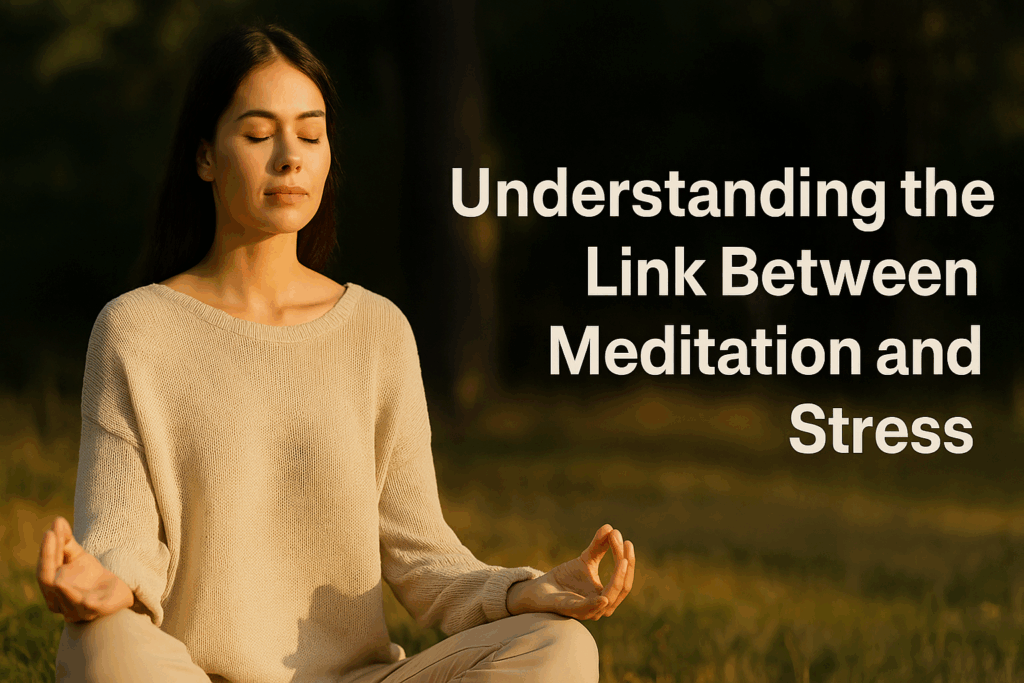
What Happens to the Brain During Meditation?
When you meditate, your brain isn’t just relaxing — it’s rewiring itself. One of the most fascinating things about meditation is its impact on the brain’s structure and activity.
During meditation, brain scans show reduced activity in the default mode network (DMN) — the part of the brain associated with mind-wandering, self-criticism, and rumination. This is often the mental space where anxiety and stress thrive. By calming this network, meditation helps quiet the mental noise that fuels stress.
At the same time, meditation increases activity in areas like the prefrontal cortex (involved in decision-making and emotional control) and the anterior cingulate cortex (related to focus and self-regulation). Over time, regular practice can lead to stronger neural connections in these regions, making it easier to manage emotional responses and stay grounded during difficult moments.
What’s more, studies using MRI scans have shown that long-term meditators tend to have thicker gray matter in regions associated with attention and emotional integration. This means your brain can literally change for the better — becoming more resilient, focused, and calm.
Key Mechanisms That Make Meditation Effective for Stress Relief
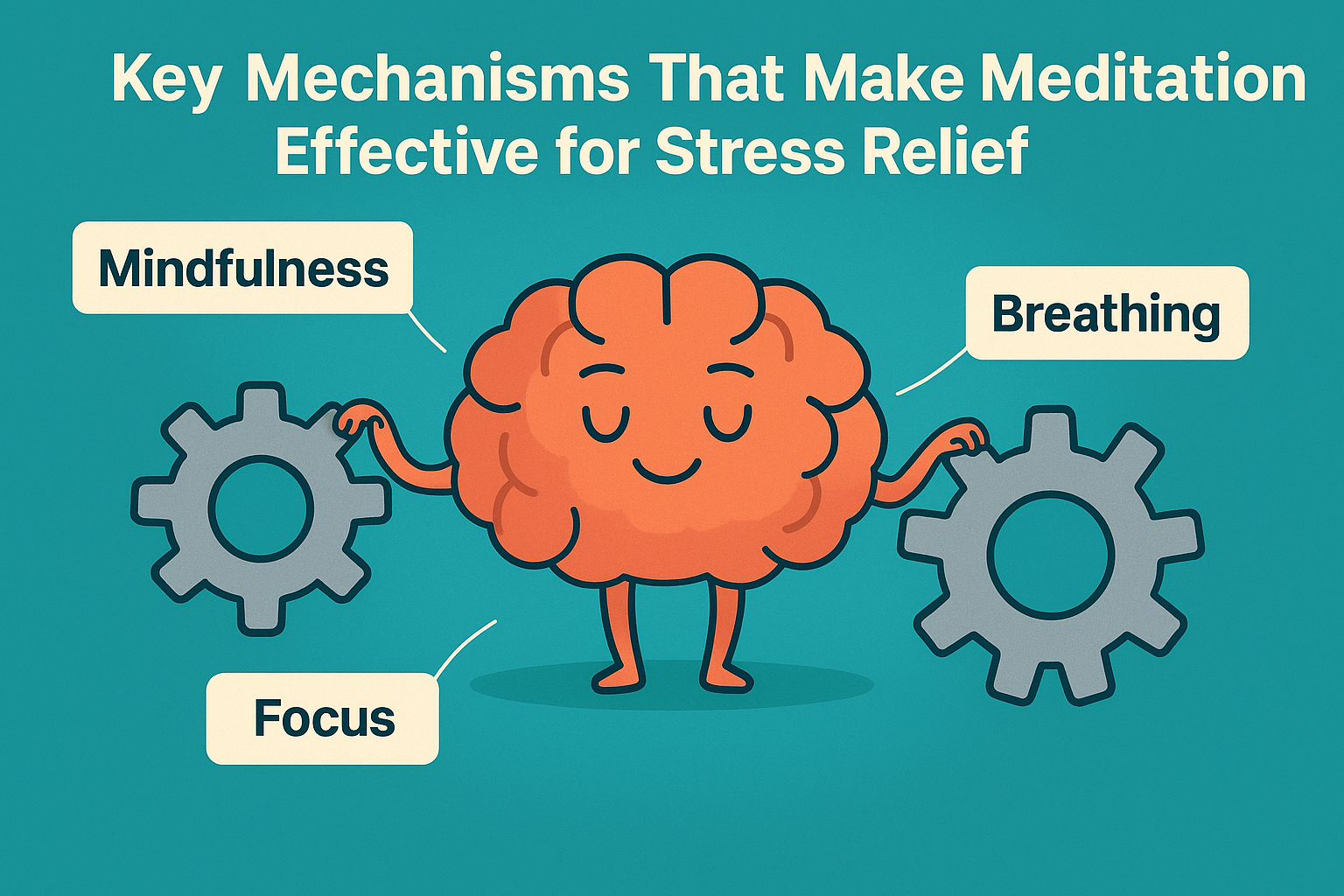
Mindfulness, Breathing, and Mental Focus
Meditation isn’t just about sitting still — it’s about how you direct your awareness. The reason meditation is so effective for stress relief lies in a few core mechanisms that work together to calm both the body and mind.
The first is mindfulness — the practice of being fully present in the moment without judgment. By focusing on the here and now, mindfulness helps break the cycle of worry about the future or regret over the past. This shift in attention lowers cortisol levels, the hormone most commonly associated with stress.
Next is conscious breathing. When you slow down your breath and take deeper inhales and exhales, your body signals to your nervous system that you’re safe. This activates the parasympathetic nervous system, also known as the "rest and digest" mode, which directly counters the stress-driven "fight or flight" response.
Finally, mental focus plays a key role. Most meditation practices involve concentrating on a single point — like your breath, a mantra, or a sound. This focused attention trains the brain to resist distractions and promotes a sense of calm clarity. Over time, this can enhance your ability to stay steady under pressure.
Together, these mechanisms create a powerful anti-stress effect. Even short sessions — as little as 5 to 10 minutes a day— can lead to noticeable changes in how you handle stress.
How Meditation Builds Mental Resilience
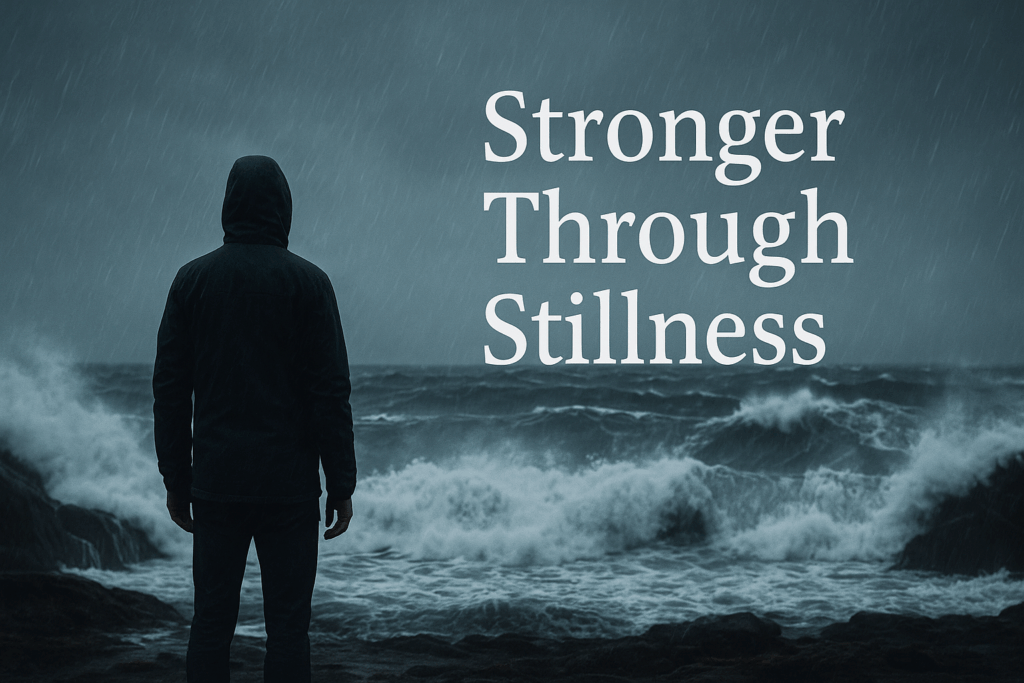
Becoming Stronger Through Stillness
In today’s fast-paced world, resilience — the ability to bounce back from stress and adversity — is more important than ever. Meditation may seem passive on the surface, but it actually trains the mind to become calmer, clearer, and stronger under pressure.
One of the key ways meditation builds resilience is by teaching you to observe your thoughts and emotions without being controlled by them. When you sit in silence and allow your mind to wander — without reacting — you develop a kind of emotional distance. This perspective helps you recognize negative thought patterns and choose how to respond, rather than being overwhelmed.
Regular meditation also improves emotional regulation. Studies show that people who meditate consistently have greater activity in the prefrontal cortex, the part of the brain responsible for decision-making and emotional control. This makes it easier to stay grounded, even when life feels chaotic.
Another powerful benefit is that meditation strengthens your inner sense of stability. Over time, you begin to realize that peace doesn’t come from external circumstances, but from your ability to stay centered. This internal shift lays the foundation for resilience — allowing you to face challenges with clarity instead of panic.
In short, meditation doesn’t just reduce stress in the moment — it prepares you to meet future difficulties with confidence and calm.
Simple Meditation Techniques to Reduce Stress
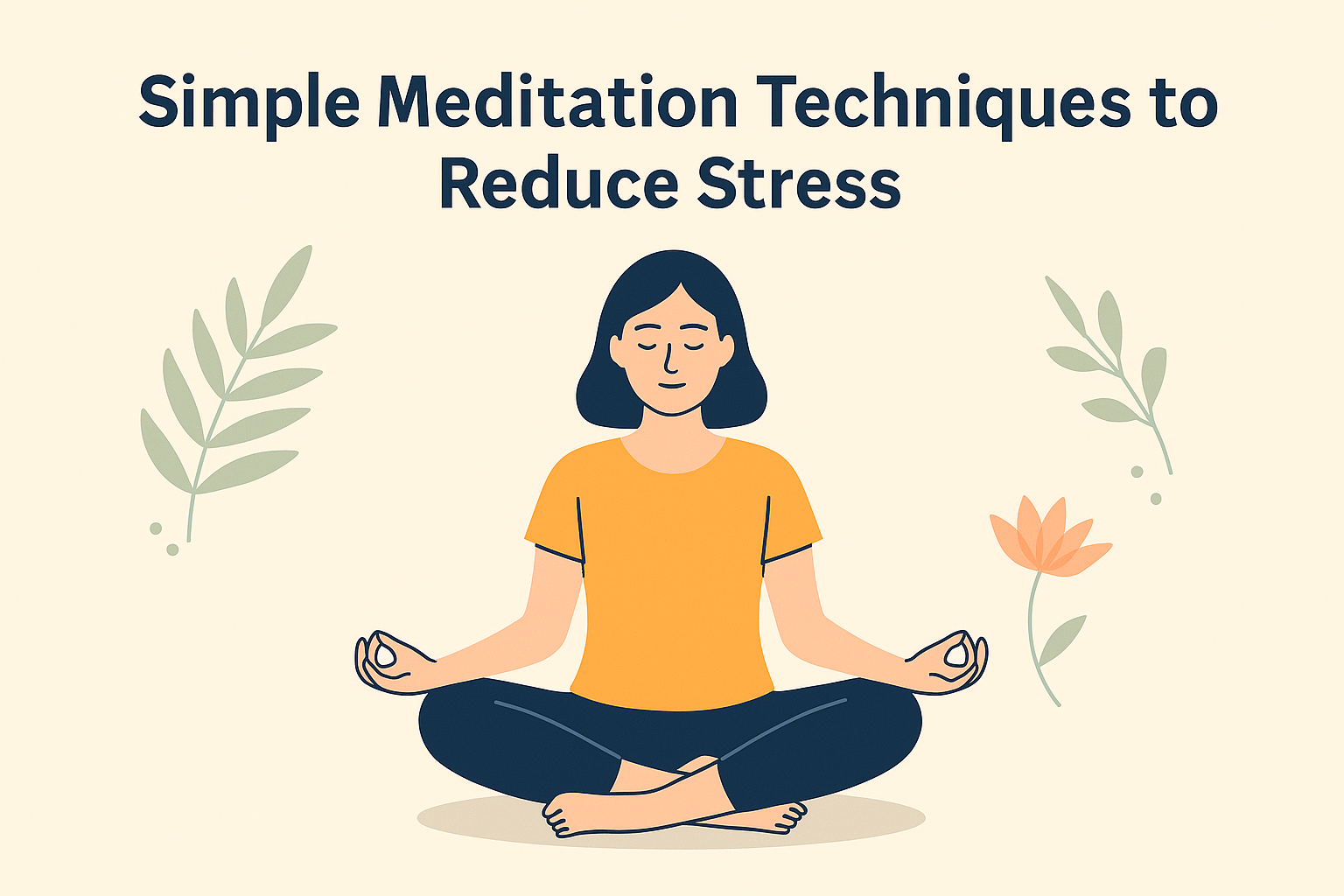
Step-by-Step Practices for Daily Life
You don’t need to be a monk or sit for hours to enjoy the benefits of meditation. In fact, just a few minutes a day can make a big difference. Here are some simple and effective techniques you can start using today to reduce stress and build inner calm.
🔗Quick guide: “A 5-Minute Meditation You Can Do Anywhere” – Mayo Clinic Minute
1. Mindful Breathing
This is one of the easiest ways to start meditating. Sit comfortably, close your eyes, and focus on your breath. Notice the air entering and leaving your nose. When your mind wanders — and it will — gently bring your attention back to your breath. Try this for 5 minutes each day, gradually increasing the time as it becomes easier.
2. Body Scan Meditation
Lie down or sit in a relaxed position. Starting from your feet, slowly bring your attention to each part of your body, moving upward. Notice any tension, pain, or sensation, and simply observe it without judgment. This helps connect your mind and body while promoting relaxation.
3. Loving-Kindness Meditation (Metta)
This technique involves sending kind thoughts and well wishes to yourself and others. Start by repeating silently: “May I be happy. May I be safe. May I be calm.” Then, gradually include others — a friend, a stranger, and even someone you have conflict with. This practice not only reduces stress but also cultivates empathy and compassion.
4. Walking Meditation
If sitting still isn’t your style, walking meditation is a great option. Walk slowly and mindfully, focusing on each step and your breath. Pay attention to the sensations in your feet, legs, and surroundings. It’s perfect for those who feel restless or prefer movement.
By adding even one of these techniques into your routine, you’ll start to feel more grounded, present, and resilient in the face of daily stress. The key is consistency — a few quiet minutes a day can lead to powerful changes over time.
Real Stories of Stress Relief and Inner Strength
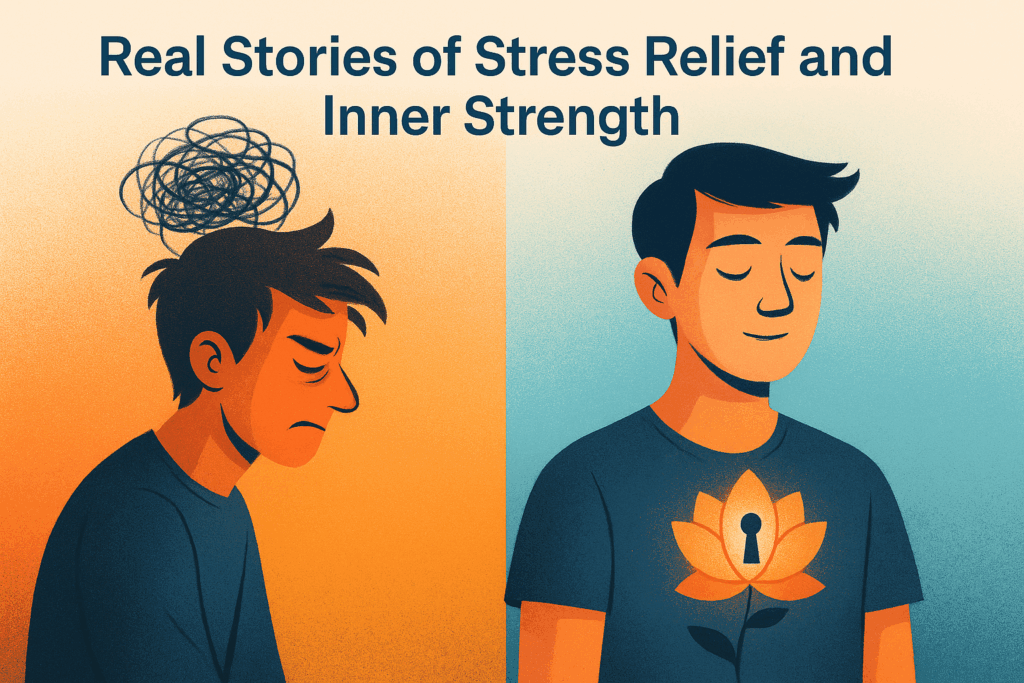
How Meditation Transformed Everyday Lives
While scientific studies provide strong support for meditation, sometimes the most powerful motivation comes from real-life stories. Here are a few examples of how meditation has helped everyday people reduce stress and become more emotionally resilient.
Eric’s Story – From Overwhelm to Inner Calm
Eric, a 31-year-old support worker from Michigan, struggled with burnout and emotional fatigue. Long days at work left him mentally drained, and he often felt like he couldn’t keep up with life.
One evening, after watching a YouTube video about mindfulness, he tried just 5 minutes of breathing meditation. At first, it felt strange — but after a week of daily practice, he noticed something incredible.
“I wasn’t snapping at little things anymore. My mind felt clearer. I could actually enjoy the quiet moments after work,” Eric said.
Over time, he added body scan meditation before bed and noticed that his sleep improved too. Meditation didn’t change his job — but it changed how he responded to stress. He says it helped him feel “stronger from the inside out.”
Maya’s Journey – Healing Through Loving-Kindness
Maya, a nurse dealing with patient loss and constant pressure, began to feel emotionally numb. She turned to loving-kindness meditation after reading about it on Reddit.
By repeating kind phrases to herself and others, she began to feel more connected to her patients and herself.
“I cried during my first few sessions,” she recalls. “It was the first time I allowed myself to be gentle with my emotions.”
Her relationships improved, and she found it easier to deal with difficult days. Maya says the practice helped her “soften without breaking.”
Why Stories Matter
These personal experiences remind us that you don’t need to be perfect at meditation to benefit from it. Whether you're burned out, anxious, or just looking for more clarity, real people show that small, consistent steps can lead to deep transformation.
Frequently Asked Questions About Meditation and Stress
Answers for Beginners and Skeptics
Q1. Do I have to meditate for a long time to see results?
A: No. Even just 5 to 10 minutes a day can make a noticeable difference in stress levels and emotional well-being. What matters most is consistency. Over time, small sessions build into big changes.
Q2. I can’t stop my thoughts—does that mean I’m doing it wrong?
A: Not at all. It’s normal for your mind to wander during meditation. The key is gently bringing your focus back to your breath or chosen anchor each time. That “coming back” is the actual practice — and it’s what helps train your brain for calm and focus.
Q3. What’s the best type of meditation for stress relief?
A: There’s no one-size-fits-all. However, beginners often benefit from mindfulness meditation, breath-focused techniques, or guided sessions through apps like Headspace or Insight Timer. You can experiment and see what works best for your lifestyle and personality.
Q4. Is there any science behind this, or is it just hype?
A: Multiple studies confirm that regular meditation can lower cortisol levels (the stress hormone), improve emotional regulation, and increase activity in brain areas linked to resilience and empathy. So yes, the benefits are well-documented and not just a trend.
Q5. I don’t have time — how can I fit meditation into a busy life?
A: You don’t need to sit in silence for an hour. Try micro-meditations — one minute before a meeting, three minutes before sleep, or five minutes during a break. Consistency is more impactful than length.
Meditation’s stress-taming effects ripple from slower breath and lower cortisol to literally rewired brain circuits—exactly why the JAMA review reported measurable relief across dozens of studies. Practice a few focused minutes each day and you’re not just feeling better; you’re training your mind to stay calmer, clearer, and more resilient—on demand. Take one mindful breath right now, and let today be the first step toward a steadier, stronger you.
